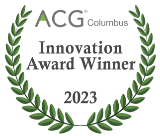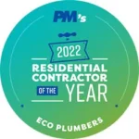Introduction
Tankless water heaters have become a popular choice among homeowners due to their energy efficiency and ability to provide endless hot water on demand. However, while these systems offer many benefits, they are also highly sensitive to the quality of the water that runs through them. Hard water, which contains elevated levels of minerals like calcium and magnesium, is one of the most common challenges that tankless water heater owners face. Over time, the effects of hard water can compromise the system’s performance, shorten its lifespan and lead to costly repairs if not properly managed. Understanding these impacts and adopting effective tankless water heater maintenance practices can help homeowners protect their investment.
Hard Water Increases Tankless Heater Maintenance
1. The Role of Minerals in Hard Water
Hard water is characterized by its high mineral content, primarily calcium and magnesium. When water passes through a tankless heater, these minerals can precipitate and attach themselves to the internal components, particularly the heat exchanger. Unlike traditional tank systems, where minerals settle at the bottom, tankless units experience scaling directly on the parts responsible for heating the water. This buildup restricts water flow, decreases efficiency and requires routine maintenance to keep the system running at optimal levels.
2. Scaling on the Heat Exchanger
The heat exchanger is the heart of a tankless water heater, transferring heat quickly and efficiently to the water. However, hard water deposits create a thick layer of scale on its surface, acting as an insulator. This insulation forces the unit to work harder to heat water to the desired temperature, resulting in increased energy consumption and reduced efficiency. If left untreated, the scaling can permanently damage the exchanger, leading to expensive repairs or complete replacement of the system.
3. Reduced Water Flow and Pressure Issues
Another common issue caused by hard water is reduced water flow. As mineral deposits build up inside the water lines and heater components, they gradually constrict the flow of water through the unit. Homeowners may notice lower water pressure in showers, faucets and appliances connected to the system. In severe cases, clogged pipes or filters may cause the unit to shut down altogether, disrupting daily routines and creating frustration. Regular descaling and cleaning are essential to prevent these issues.
4. Increased Energy Costs
One of the less obvious but highly impactful effects of hard water on tankless systems is increased energy consumption. As scaling reduces the efficiency of the heat exchanger, the system requires more power to heat the same amount of water. This inefficiency translates into higher utility bills over time. For homeowners looking to reduce energy costs, ignoring hard water issues can quickly offset the savings typically associated with tankless systems. Preventive maintenance is key to ensuring that the system operates at peak efficiency.
5. Shortened Lifespan of the Unit
Tankless water heaters are designed to last longer than traditional tank models, often exceeding 15 to 20 years with proper care. However, exposure to hard water can dramatically shorten this lifespan. Constant scaling, stress on the components and overheating from restricted water flow all contribute to premature system failure. Without consistent tankless water heater maintenance and descaling, homeowners may find themselves replacing their unit far earlier than expected, turning what should be a long-term investment into a recurring expense.
6. Maintenance Challenges and Frequency
Maintaining a tankless water heater in an area with hard water requires more frequent servicing than in regions with soft water. While manufacturers often recommend flushing the system annually, households dealing with very hard water may need to schedule maintenance every six months. This process involves descaling the heat exchanger with a vinegar or descaling solution, checking filters and ensuring that mineral buildup does not interfere with the system’s performance. Skipping or delaying this routine can accelerate the negative effects of hard water.
7. The Importance of Water Softeners
One of the most effective ways to combat the impact of hard water is by installing a water softener. A softener removes calcium and magnesium from the water supply before it reaches the tankless heater, significantly reducing the risk of scale buildup. While the upfront cost of a softening system may seem high, it can save homeowners considerable money in the long run by extending the life of the water heater and lowering maintenance costs. For areas with extremely hard water, a softener is not just a convenience—it is a necessity.
8. Professional Maintenance and Inspections
Although some tankless water heater maintenance tasks, such as flushing the system, can be performed by homeowners, professional inspections are critical for long-term reliability. Technicians can identify scaling, inspect components for wear and test water flow rates to ensure that the system is functioning properly. Professionals can also recommend additional protective measures tailored to the household’s water quality. By scheduling regular service, homeowners can address minor issues before they turn into major and costly problems.
Hard water poses significant challenges to the performance and maintenance of tankless water heaters. From scaling on the heat exchanger to reduced water flow, increased energy costs and shortened lifespan, the consequences of neglecting water quality can be expensive and inconvenient. Homeowners who understand the risks and take proactive steps—such as frequent maintenance, using descaling solutions and investing in a water softener—can protect their system and ensure years of reliable service. Regular professional inspections further safeguard against unexpected breakdowns, making it clear that addressing hard water is essential for anyone relying on a tankless unit.
Conclusion
Protect your investment in a tankless water heater by addressing hard water today. Schedule a professional maintenance check with us at Eco Plumbers, Electricians, and HVAC Technicians at (855) 326-7586.
📌 Fast, reliable help is a call away! Eco Service Center handles plumbing, electrical & HVAC—expert service near you, anytime you need it!










